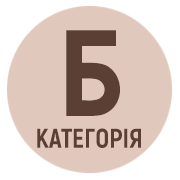THE CONCEPT OF “TIME” IN THE CHAMBER MUSIC OF MODERN COMPOSERS OF UKRAINE AND CHINA
DOI:
https://doi.org/10.32782/2224-0926-2024-1-48-1Keywords:
piano ensemble, time, composer, interpretation, performance, the language of music.Abstract
The article deals with individual author's approaches to the interpretation of the concept of “time”, based on the example of works for a piano ensemble by modern composers of Ukraine and China. The scientific novelty consists in the first reference in Ukrainian musicology to the work of one of the youngest representatives of the Ukrainian school of composers, Anastasia Sysenko, and a more mature modern Chinese avant-garde artist Shi Fuhong, and in the first consideration of their works from the standpoint of rethinking the time continuum in programmatic images. Conclusions. Based on the works of modern scientists-linguists and developers of the problems of aesthetics and philosophy of art M. Markova, O. Lozova, E. Bondarenko, musicologists O. Samoilenko, Lu Jie, the semantic features of the concept “time”, which is defined as a mental unit of consciousness, were elucidated by the method of semiotic analysis. The multicomponent character of the system of meanings of the concept “time” was clarified. Among the works of modern composers of Ukraine and China, the most representative examples of its embodiment in ensemble works for two pianos were identified and selected for analysis: in A. Sysenko's Fantasy Sonata and Shi Fuhong's Fantasy “Trace of Time”. The study of the works of Chinese and Ukrainian female composers was chosen for the purpose of comparative analysis and generalization of the specifics of the interpretation of the concept on the example of particularly remote mental areas. Distant not only in a geographical sense, but also in a worldview, philosophical, customary, and most importantly, in diametrically opposed settled age-old traditions of aesthetics and musical culture. The analysis of the most revealing examples is presented in the proposed research. It was established that the emergence of each of them was inspired by the influence of completely different emotional and life factors. The stylistic features of the works considered are summarized, such as lyricism as a characteristic dominant feature of Ukrainian music in A. Sysenko's Fantasy Sonata; the application of avantgarde composition techniques in the works of Chinese composers of the early 21st century. in Shi Fuhong’s Fantasy. The logic of using the category of the concept “time” in composers’ programmatic creative work is proven.
References
Бондаренко Є. Еволюція поняття часу в англійській мові та у дискурсі». Харків: Харківський національний університет імені В.Н. Каразіна, 2012. 35 с.
Задорожна О. М. Естетичне осмислення філософської категорії часу в метафоричних конструкціях. Лінгвістика. Луганськ: Альма-матер, 2007. № 2. С. 175–182.
Лозова О. Ю. До проблеми визначення концепту. Концептологія. Розділ V, Київ: Національний педагогічний університет ім. М. П. Драгоманова, 2007. С. 139–144.
Лу Тун. Специфічні риси фортепіанних творів Ши Фухун. Пекін: Народна музика, 2022. С. 18–24.
Маркова М. В. «Концепт» та «концептуалізація» у сучасному літературознавстві. Питання літературознавства: науковий збірник. Вип. 74. Чернівці: Рута, 2007. С. 317–324.
Organ Hall Post. Перша львівська газета про Органний зал. Львів, лютий 2024. 4 с.
Самойленко О. І. Психологія мистецтва: сучасні музикознавчі проекції: монографія. Одеса: Видавничий дім "Гельветика", 2020. 235 с.
Сухомлин Ярослав. Мистецтво під час війни – яке воно? Чернігівська Медіа Група. 20.09.2022. URL: https://www.0462.ua







